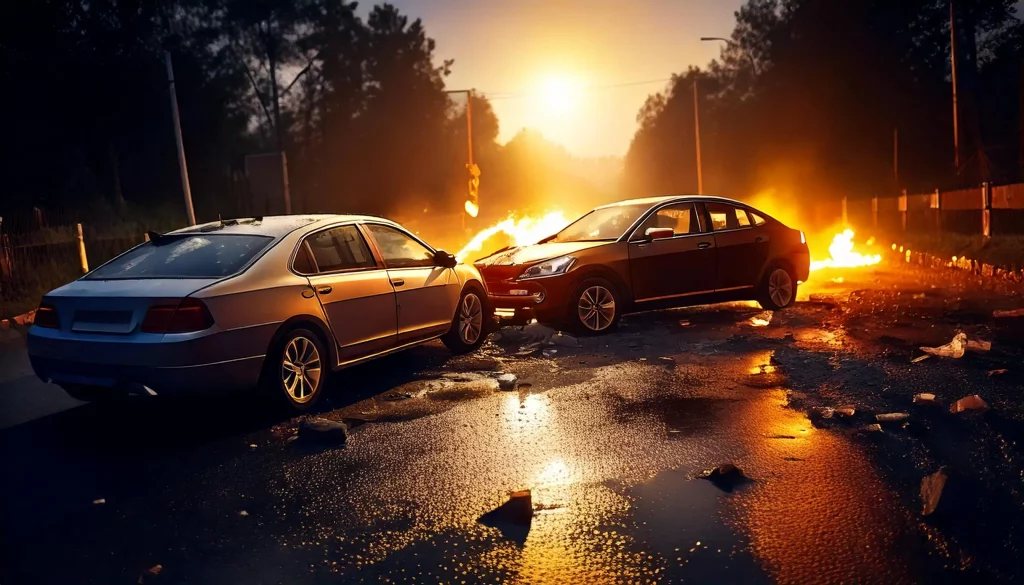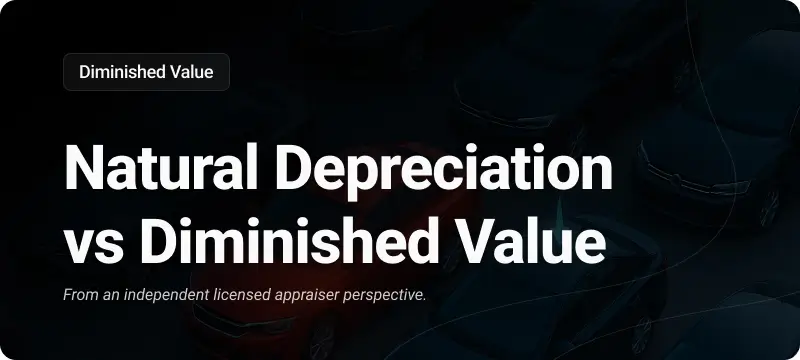So, your car’s been declared totaled, and now you’re not sure what to do. Trust me, I know it’s tough, and it can feel like the world’s suddenly gotten a whole lot more complicated. But don’t worry—I’m here to help you navigate these next steps with a clear head and some helpful advice. Whether you’re unsure about the insurance claim process or wondering if you’re getting a fair payout, we’ll walk through everything together.
DOWNLOAD THE “What Happens When Your Car Is Totaled” PDF

1. What Does “Totaled” Really Mean?
First things first: What does it even mean when they say your car’s been “totaled”? Well, it’s just a way of saying that your insurance company thinks it costs too much to fix compared to what the car’s worth. Generally speaking, if the repair costs exceed 70-80% of the car’s value, they’ll declare it a total loss.
Common reasons for a car being totaled:
- Major damage from an accident.
- Flooding or fire damage that’s too costly to repair.
- Vandalism or other damage that makes fixing it impractical.
Understanding this is a good place to start. It’s all about the numbers—what it’s worth to fix compared to what your car is actually worth.
2. First Steps After Your Car Is Totaled
Once you get the news that your car is totaled, it’s important to act quickly, but don’t rush things either. Here’s what you should focus on right away:
- Make Sure Everyone’s Safe: This might be obvious, but safety comes first. Whether it was an accident or something else, make sure everyone is okay.
- Call Your Insurance Company: Report the accident or damage, and get the claims process rolling. The sooner you start, the sooner things will get resolved.
- Gather Your Documents: You’ll need things like the police report, photos of the damage, and any repair estimates. These will be crucial when you’re negotiating with the insurance company.
At this point, you’ve got to get all your ducks in a row. The more organized you are, the smoother this process will go.
3. How to Handle the Insurance Claim
Dealing with an insurance claim can feel like jumping through hoops, but don’t let it overwhelm you. You’ve got a right to fair treatment, and you should know exactly how this works:
- Start the Claim: Provide your insurer with all the documentation—photos, reports, anything that shows the damage.
- Understand the Value: They’ll use things like Kelley Blue Book or NADA Guides to figure out what your car was worth before the accident.
- Review Their Offer: When they give you their offer, don’t just accept it right away. Take a close look. If it seems too low, you can push back. Get a second opinion if you need to.
Remember, you don’t have to take the first offer. Sometimes a little negotiation can go a long way, and if it feels like they’re undervaluing your car, you can ask for an independent appraisal.
4. Understanding Your Settlement Offer
When your insurance company gives you a settlement, it’s not just about handing you some cash and calling it a day. They’re calculating the Actual Cash Value (ACV) of your car, which is basically what it was worth right before the accident. Here’s how they figure that out:
- Depreciation: Unfortunately, cars lose value over time, so they’re not just going to pay you what you paid for the car.
- Loan Payoff: If you still owe money on the car, they’ll settle with the lender first. You get whatever’s left after that.
What happens if the payout doesn’t cover your loan?
- This is where gap insurance comes in. If you’ve got it, gap insurance will cover the difference between what you owe and what the car was worth. If you don’t have it, well, you might end up paying off a car you can’t even drive anymore. Something to keep in mind for the future.
5. Totaled But Still Drivable: Salvage Title Option
Now, in some cases, even though the insurance company declares your car totaled, it might still be drivable. If you want to keep it, you can go the salvage title route. Here’s what that means:
- Salvage Title: This title tells future buyers that the car was damaged so badly it was written off by the insurance company. You can still drive it, but there are some things to be aware of.
Pros and Cons of a Salvage Title:
- Pros: You save some money by not buying a new car, and if repairs are relatively minor, you might come out ahead.
- Cons: Salvage cars can be tricky. They’re harder to insure, and you probably won’t get full coverage. Plus, they have a much lower resale value.
If you’re thinking about keeping a totaled car, make sure you’re factoring in the long-term costs and risks.
6. Do You Have a Diminished Value Claim?
Let’s say your car wasn’t totaled, but it still took a beating in the accident. Even after repairs, your car is probably worth less now than it was before. This is where diminished value claims come in.
- Diminished Value: This is the difference between what your car was worth before the accident and what it’s worth now, even after being fixed.
Filing a diminished value claim:
- Proof of Damage: Get photos, repair estimates, and maybe even a second appraisal to show how much value your car lost.
- Negotiate with the Insurer: You might have to push a little here, but you’re entitled to compensation for the reduced value of your car.
7. What to Do Next: Replace or Repair?
Once your settlement comes through, you’ve got a decision to make. Should you go ahead and buy a new car, or try to repair the old one?
- Buying New: This might be your best bet if the car is truly beyond repair. The settlement will go toward buying a new or used car.
- Repairing the Vehicle: If you keep your car under a salvage title, you’ll want to get quotes from trusted mechanics. Make sure the repairs are worth the investment.
Either way, be sure you’re making a decision that’s financially smart and safe for the long haul.
8. Biggest Concerns Car Owners Face When Their Car Is Totaled
I know having a totaled car comes with its fair share of worries, and I want to address some of the most common concerns:
- Financial Loss: If you’re underwater on your car loan, this can be a tough hit. Gap insurance is something to think about next time to protect yourself.
- Not Having a Vehicle: Suddenly being without transportation can be stressful. See if your insurance covers a rental car while things are sorted out.
- Dealing with Insurance: The claims process can be frustrating, but don’t get discouraged. Be persistent, organized, and willing to push back if necessary.
Conclusion
Having your car totaled is no walk in the park, but you don’t have to go through it alone, and you don’t have to feel lost in the process. From gathering documentation to negotiating a fair settlement, the key is to stay patient and informed. Understanding how the system works can save you money and stress.
And remember—whether it’s looking into gap insurance for next time, or making sure your settlement is fair, you’re in control. Take things one step at a time, and you’ll be back on the road soon enough.



